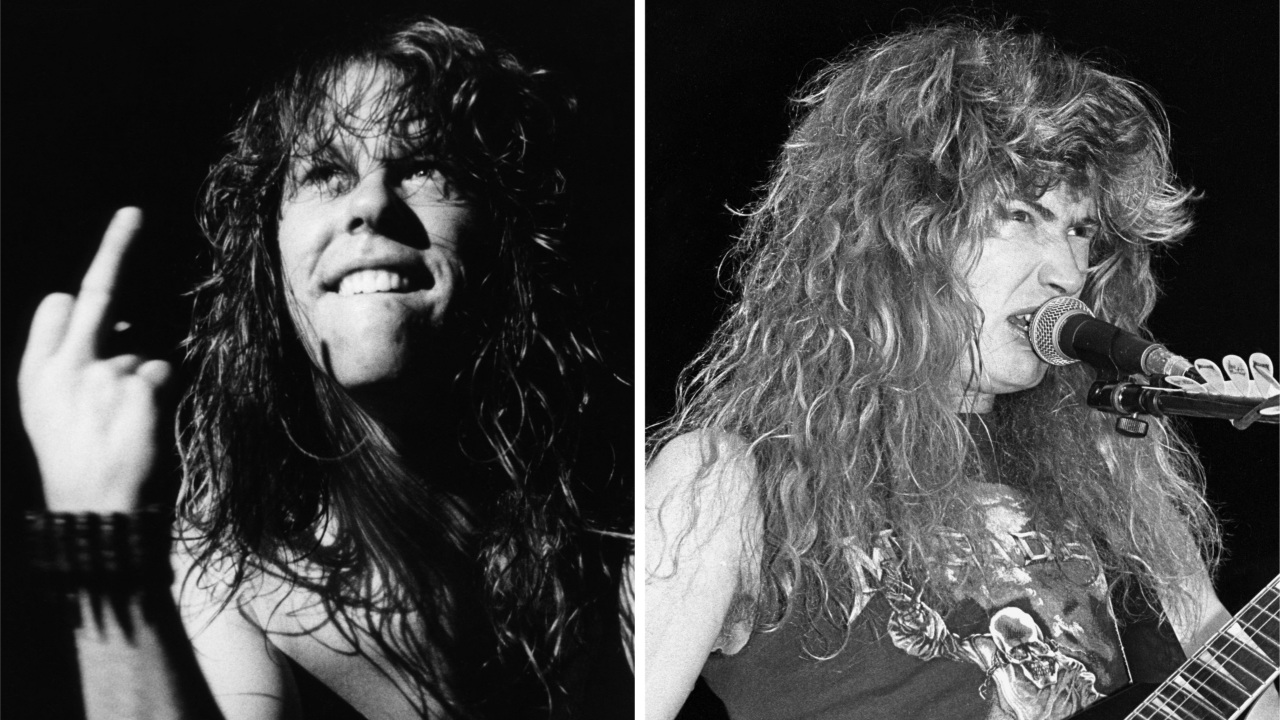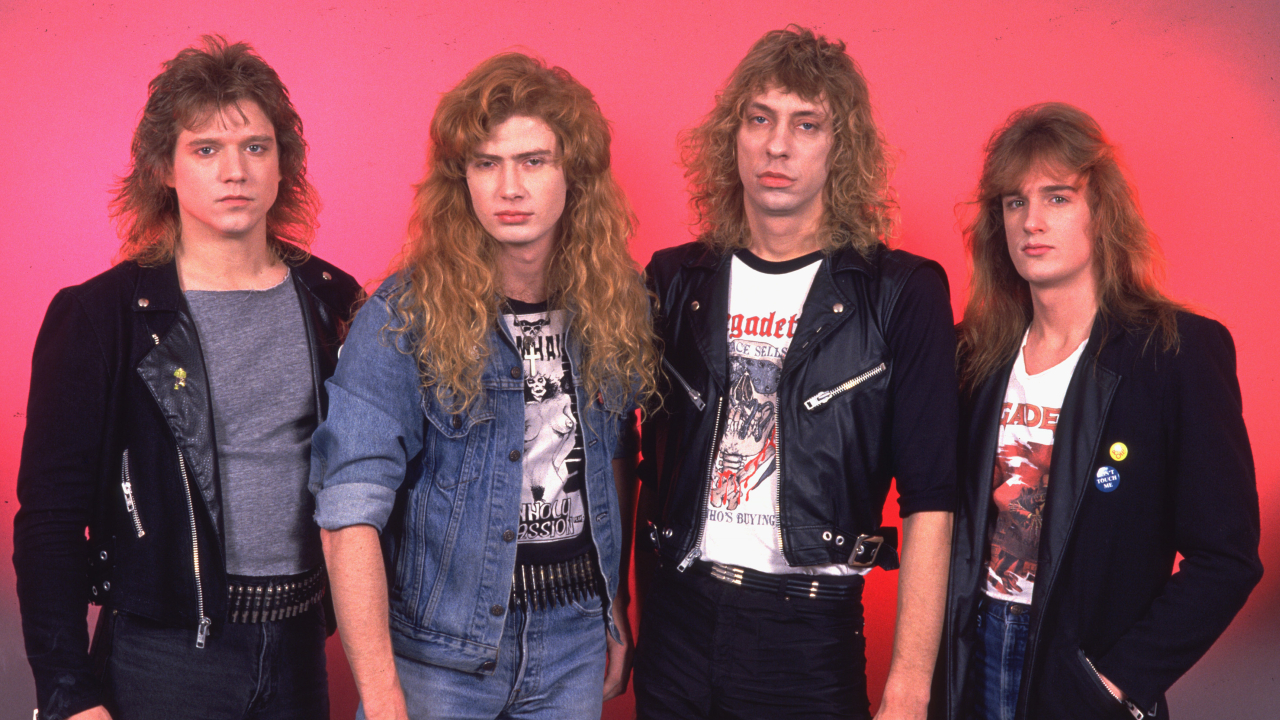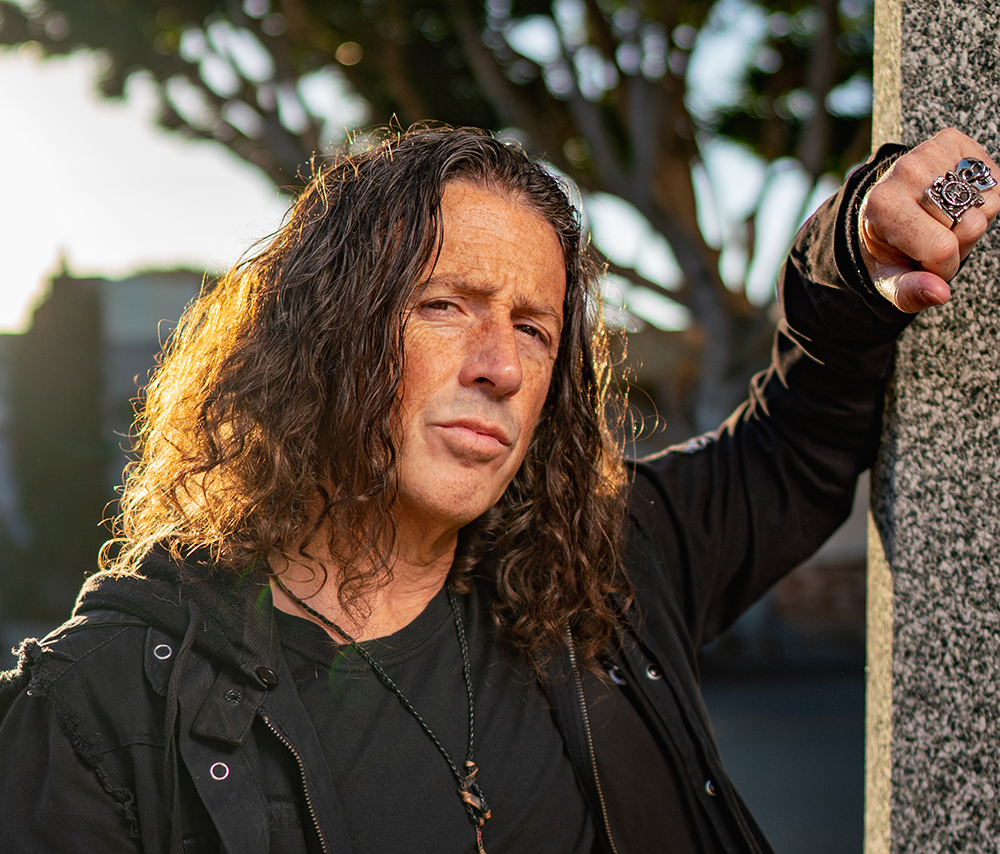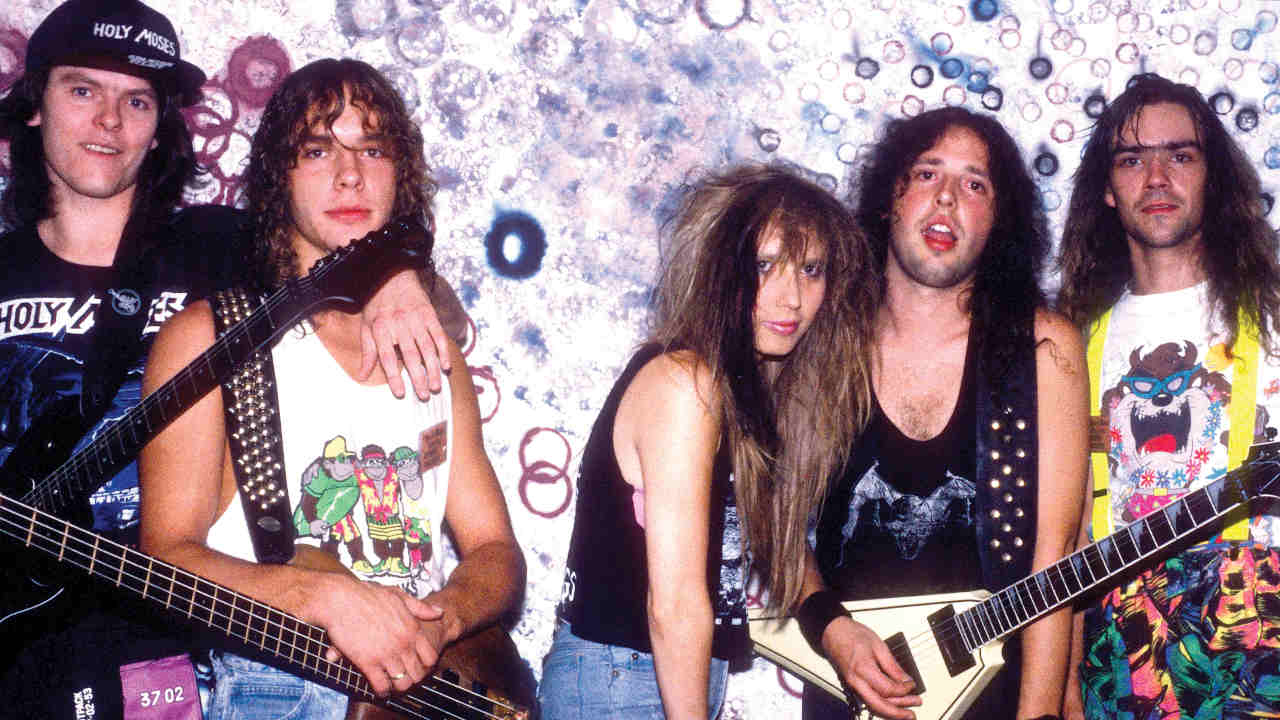“I played Sweet Home Alabama, and that became part of Metallica’s The Four Horsemen”: The Four Horsemen vs Mechanix – how Metallica and Megadeth released two warring versions of the same song
Megadeth leader and ex-Metallica guitarist Dave Mustaine wrote a thrash metal classic called The Mechanix in the early ’80s. Today, both bands lay claim to vastly different versions of the song.

Select the newsletters you’d like to receive. Then, add your email to sign up.
You are now subscribed
Your newsletter sign-up was successful
Want to add more newsletters?

Every Friday
Louder
Louder’s weekly newsletter is jam-packed with the team’s personal highlights from the last seven days, including features, breaking news, reviews and tons of juicy exclusives from the world of alternative music.

Every Friday
Classic Rock
The Classic Rock newsletter is an essential read for the discerning rock fan. Every week we bring you the news, reviews and the very best features and interviews from our extensive archive. Written by rock fans for rock fans.

Every Friday
Metal Hammer
For the last four decades Metal Hammer has been the world’s greatest metal magazine. Created by metalheads for metalheads, ‘Hammer takes you behind the scenes, closer to the action, and nearer to the bands that you love the most.

Every Friday
Prog
The Prog newsletter brings you the very best of Prog Magazine and our website, every Friday. We'll deliver you the very latest news from the Prog universe, informative features and archive material from Prog’s impressive vault.
Megadeth leader Dave Mustaine’s fleeting tenure in Metallica played out in a symphony of ego clashes and hazy alcohol use, and it reached a crescendo in New York City on April 11, 1983. At 9am that day, frontman James Hetfield, drummer Lars Ulrich and late bassist Cliff Burton roused Mustaine from a boozy slumber, fired him from the band and, adding extreme insult to injury, handed him a bus ticket for a four-day ride back to California. Understandably, Mustaine took it all deeply personally and, on his westward journey home, he plotted what eventually became metal’s most notorious rivalry: Metallica vs Megadeth.
One of the story’s enduring subplots involves Metallica’s The Four Horsemen and Megadeth’s Mechanix. They’re competing interpretations of The Mechanix: an old and much-beloved Metallica song that first appeared on the pre-Kill ’Em All demos Power Metal and No Life ’Til Leather. Both camps agree that Mustaine brought The Mechanix to Metallica when he joined the band in 1982.
“Dave brought in some things he had from his old band, Panic – things he’d been jamming, bigger-picture ideas, stuff like that,” Ulrich told Metal Hammer. “The song The Four Horsemen was, in its early version, called Mechanix, and it was literally a song about sex.”
Even with its aged and scuzzy demo quality, The Mechanix shows the ferocious sonic alchemy in Metallica’s original lineup (which included pre-Burton bassist Ron McGovney). Mixing blistering riffs, a frenzied tempo and some brawny vocals from Hetfield, it is a thrash metal blitzkrieg with a garage band spirit. It also hinted at the progressive complexity that would later define both Metallica and Megadeth’s songwriting.
Lyrically, The Mechanix aligned far more closely with the puerile sex obsessions of hair metal than with the anger and rebellion of the nascent thrash movement. “The lyrics are about a horny gas station attendant, because I was a horny gas station attendant,” Mustaine said in a 2017 Rolling Stone interview. “I was a teenager living down in the Huntington Beach Harbor and girls would come into the gas station, driving these really expensive cars in bikinis. Fuck, are you kidding me?”
Packed with enough clumsy double entendres to make AC/DC’s Brian Johnson sound like a poet laureate, it was not the direction that Hetfield and Ulrich wanted to take. Ulrich told Hammer: “We knew that was the sort of thing we wanted to move away from: the sexual stuff that hard rock bands were singing about at the time, which we thought was a little light and a little obvious.”
Eventually Metallica, with Mustaine, reworked The Mechanix into something both thematically and structurally distinct from the original. They slowed it down and added a second solo, as well as that infamous Lynyrd Skynyrd bridge.
Sign up below to get the latest from Metal Hammer, plus exclusive special offers, direct to your inbox!
“One day when we were coming to rehearsal, Lars had just said something about slowing down my song, Mechanix,” Mustaine recalled to Revolver in 2011. “I had just gotten to the studio with Cliff, and we had been listening to Lynyrd Skynyrd, and I was being a jerk, so I played Sweet Home Alabama instead of Mechanix, and that’s basically the middle part of what would become Metallica’s The Four Horsemen.”

I was being a jerk, so I played Sweet Home Alabama instead of Mechanix, and that’s basically the middle part of what would become Metallica’s The Four Horsemen.
Dave Mustaine
Hetfield changed Mustaine’s petrol-scented sex-romp lyrics into a tribute to the biblical Book Of Revelations’ Four Horsemen Of The Apocalypse: Death, Famine, War and Conquest (although, inexplicably, the singer changed one horseman’s name from War to Time). The subject matter was far more appropriate for a hostile pack of metal upstarts who demanded to be taken seriously.
Mustaine’s departure came a month before Metallica were due to record Kill ’Em All in New York in 1983. Replacement guitarist Kirk Hammett had already been hired and, by then, Burton had stepped in for Ron McGovney, who’d departed in ’82. The Four Horsemen became the second track on Kill ’Em All, and writing credits for it were apportioned to Hetfield, Ulrich and Mustaine.
In 1984, Mustaine formed Megadeth as a grand declaration of war against his old bandmates. Resolving to play faster and heavier than any other band at the time, and unwilling to relinquish his ownership of The Mechanix, Megadeth released their own take of the song on their 1985 debut, Killing Is My Business... And Business Is Good!. Resurrecting the original lyrics and name (without the The), Megadeth’s version retained its roots in speed metal, unleashing a supersonic frenzy that flaunted the dexterity of Mustaine’s playing. It was an exhilarating and frenetic sound that recalled Metallica’s earliest music, ratcheted up to frightening new levels. Writing credit was given solely to Mustaine.
For fans, the different versions of The Mechanix offer endless fuel for debate. There’s a more practical dispute at hand as well: plans to release a No Life ‘Til Leather box set back in 2016 were scuttled for then-unspecified legal reasons, before Mustaine revealed himself as the blockade. He told RockHard in 2018: “I’m not gonna give [Lars] my credit, so I’m not gonna be part of it. I wrote all of Mechanix, I wrote all of [Kill ’Em All track] Jump In The Fire, so me giving any percentage of that to Lars Ulrich, he can pound sand.”
The controversy has left an indelible mark on the history of both Metallica and Megadeth, straight through to the current day. In 2022, Mustaine told podcaster Joe Rogan: “The thing that bothered me the most [about being fired from Metallica] was I had all my music, and I left it behind and I said, ‘Don’t use my music.’ And of course they did. They used it on the first record [Kill ’Em All], on the second record [1984’s Ride The Lightning].”
One thing can be agreed on, though: 40 years later, both permutations on The Mechanix rip. From that first cataclysmic spark of collaboration between Hetfield and Mustaine to the contrasting identities of Metallica and Megadeth, this one song is so good that two of metal’s biggest bands lay claim to it. And it all started because someone felt frisky in a gas station…
Hailing from San Diego, California, Joe Daly is an award-winning music journalist with over thirty years experience. Since 2010, Joe has been a regular contributor for Metal Hammer, penning cover features, news stories, album reviews and other content. Joe also writes for Classic Rock, Bass Player, Men’s Health and Outburn magazines. He has served as Music Editor for several online outlets and he has been a contributor for SPIN, the BBC and a frequent guest on several podcasts. When he’s not serenading his neighbours with black metal, Joe enjoys playing hockey, beating on his bass and fawning over his dogs.

